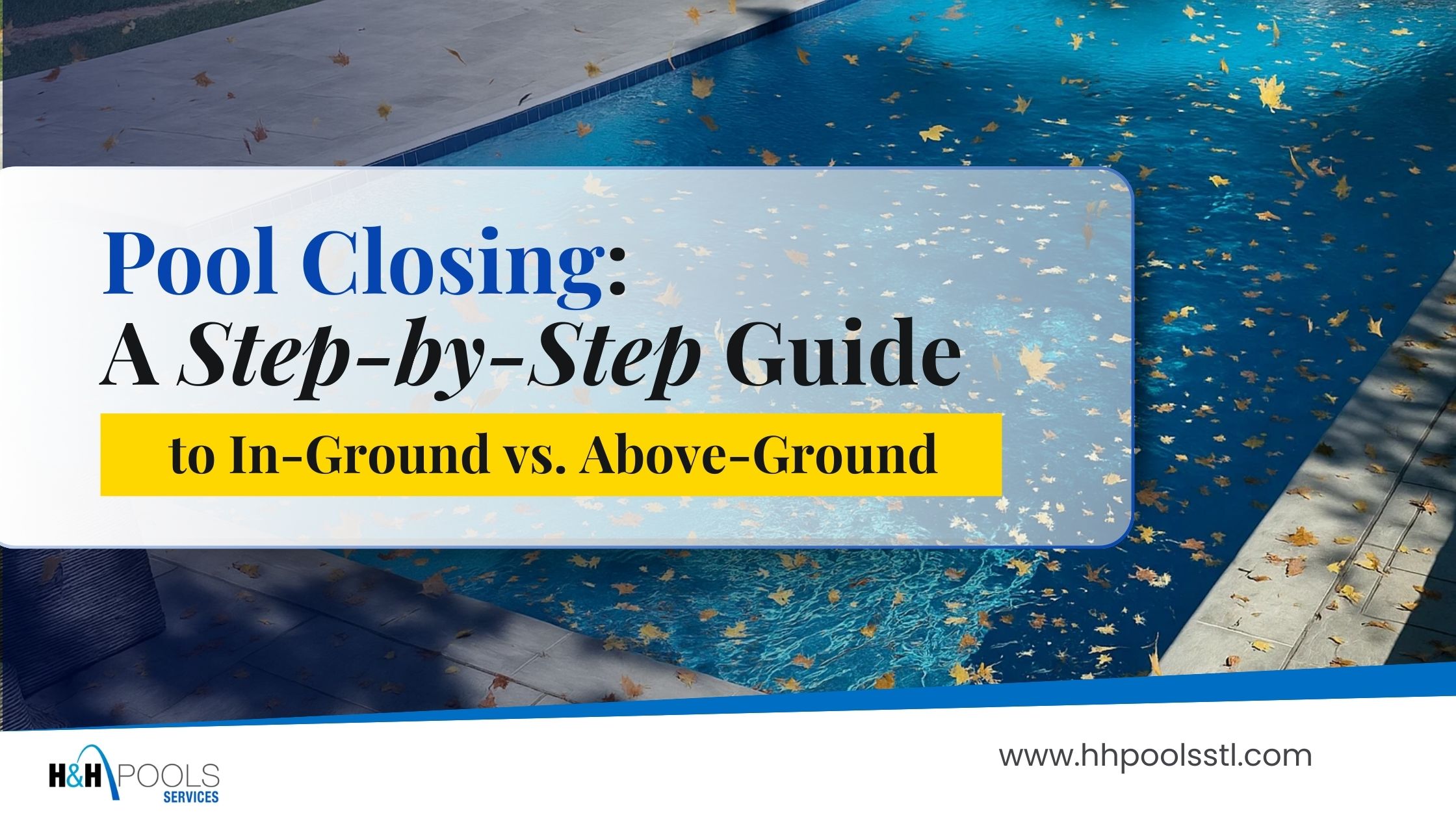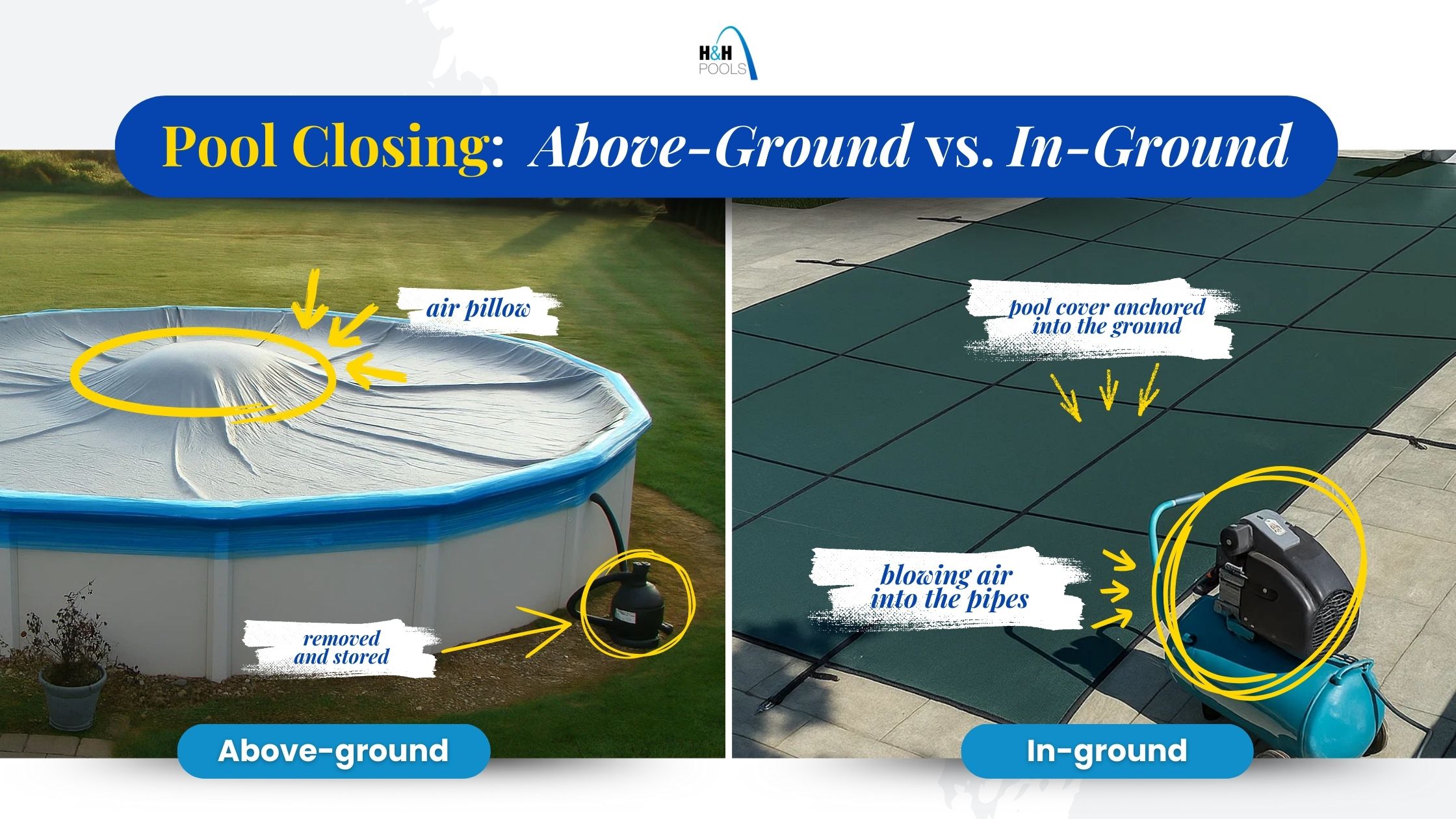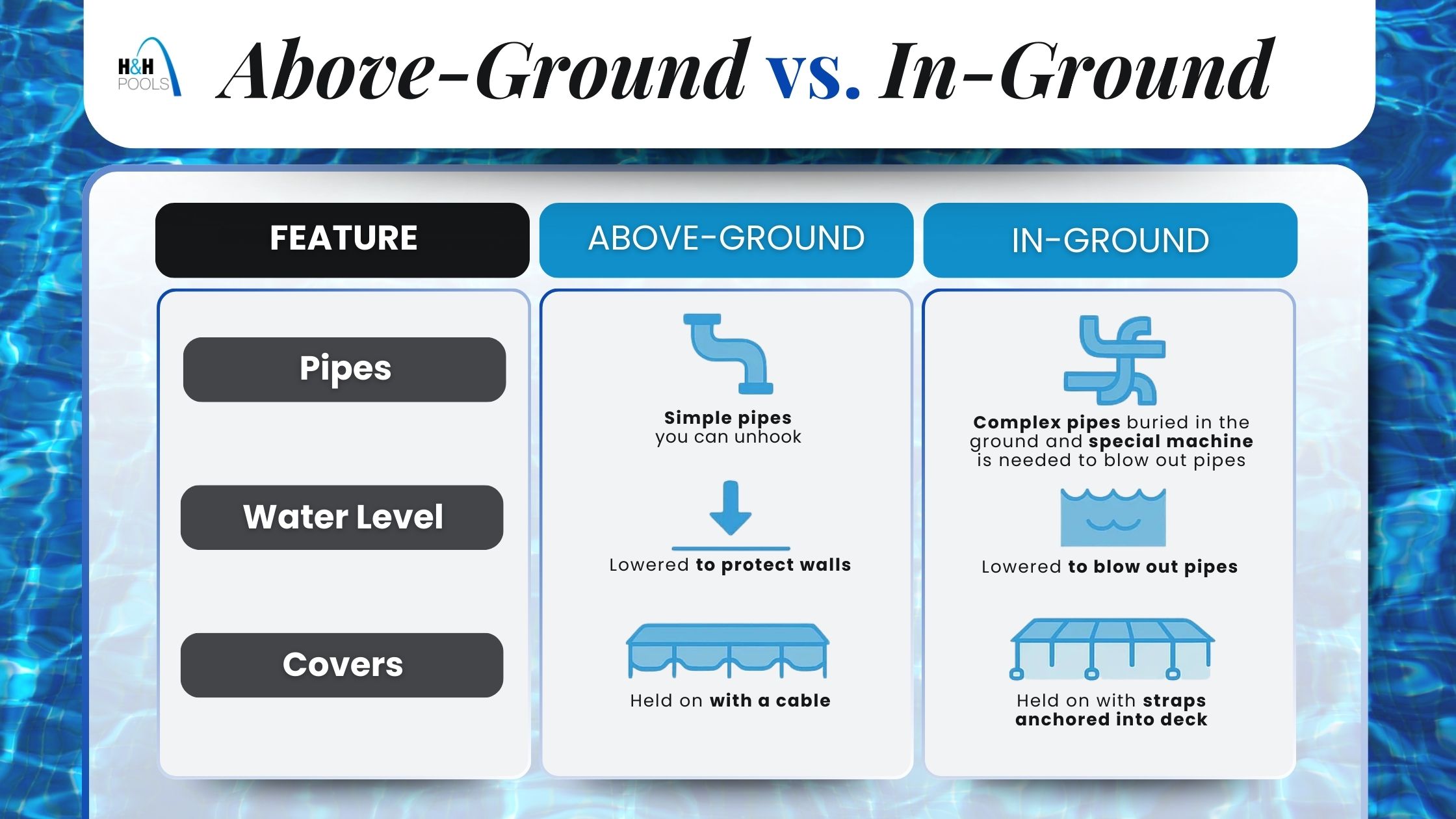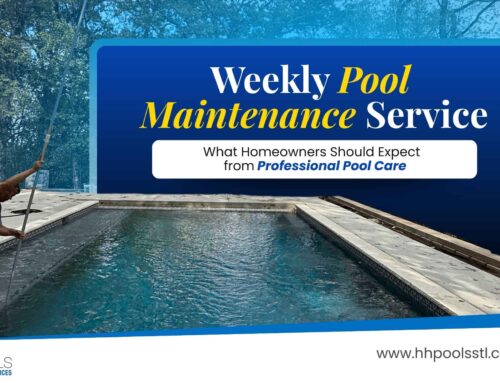
Pool Closing: A Step-by-Step Guide to In-Ground vs. Above-Ground
As summer comes to an end, it’s time to think about pool closing. We know it’s not the most fun job, but it’s a very important one. Closing the pool for winter will save you from big, expensive problems later on. A little bit of work now means less stress and more money in your pocket next spring.
The most important thing to know is that closing an above-ground pool is very different from an in-ground pool. If you do it the wrong way, you could damage your pool. Let’s look at the correct pool closing steps for each type, so you can close your pool with no worries.
Why Pool Closing for Winter is So Important
Pool closing isn’t just about putting a cover on it. It’s a key process that protects your pool and saves you time and money.

How to Close an Above-Ground Pool
Above-ground pools are usually easier to close because their parts are above the ground. But you still need to follow each step carefully to properly winterize above ground pool.
How to Close an In-Ground Pool
In-ground pools need more care, especially for the pipes that are buried in the ground. To properly winterize in-ground pool, follow these steps.
Above-Ground vs. In-Ground: What’s Different?
Both pools need to be closed, but the work is very different. Knowing these differences will help you get the job done right.

Understanding the Cost of Pool Closing
The pool closing cost can change based on a few things. If you do it yourself, you’ll only pay for the supplies like chemicals and a cover. But if you hire a professional, the cost will be higher. The price for a pool closing service is often based on the type and size of your pool. For example, in-ground pools can be more expensive to close because the process is more complex and takes more time. If you’re looking for a local expert, you can search for a pool closing service near me or even compare pool closing companies near me.
If you’re thinking about building a new pool, you can get a good idea of what it will cost by using our Pool Price Estimator.
Common Mistakes to Avoid
Even with a checklist, it’s easy to make a mistake during pool closing. Here are some common ones and what can happen.
- Forgetting to Balance the Water: If the water isn’t balanced, you could end up with a green, dirty mess in the spring. This will make opening your pool a real pain.
- Leaving Equipment Outside: Leaving your pump or filter outside in the cold is a bad idea. They can get damaged and break. Always store them inside in a dry place.
- Using the Wrong Cover: A cover that is too small or big won’t protect your pool. Using a cheap tarp is also a mistake because they are not strong enough and can tear easily.
- Not Cleaning the Pool First: If you don’t clean your pool before closing, all the dirt and leaves will rot over the winter. This will cause stains on the pool and make cleaning it in the spring a huge job.
FAQs
Final Thoughts
While closing your pool for the winter might not be the most fun part of being a pool owner, it is a crucial responsibility. By understanding what your pool needs, you can do the job right. A little work now means you’ll save money on repairs and have a much easier time opening your pool next spring.
Need help with pool closing in the St. Louis area? Our professional team can handle all the work for you. We offer pool opening and closing services near me to make your season transitions seamless.
Check out our Pool Closing services to learn more!





